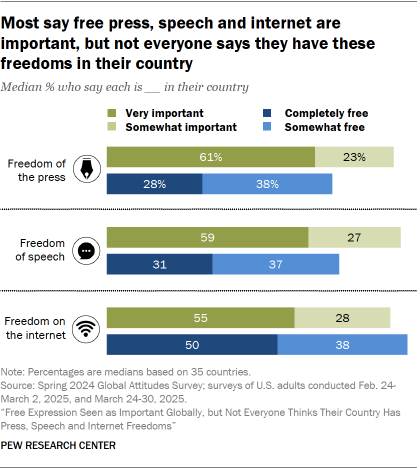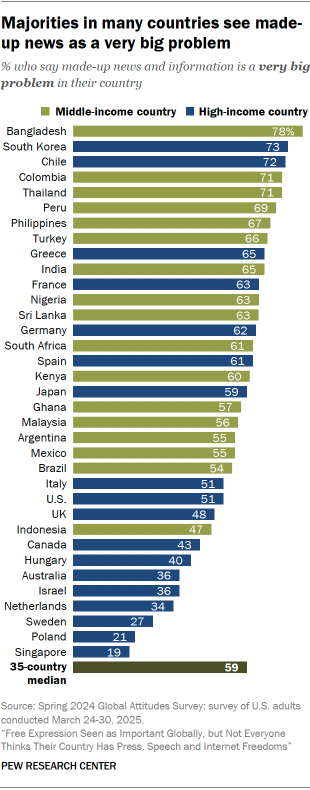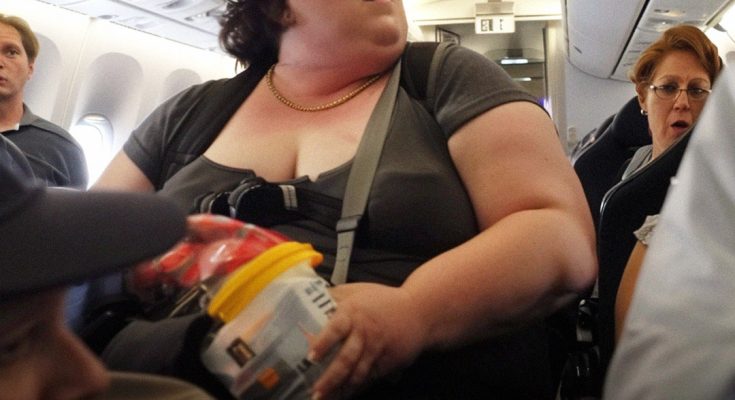Free Expression Seen as Important Globally, but Not Everyone Thinks Their Country Has Press, Speech and Internet Freedoms

Amid global debates about press freedom, free speech and freedom on the internet, new surveys of 35 countries show there is a disconnect between how people rate the importance of these freedoms and how free they actually feel to express themselves.
Overall, a median of 61% of adults across 35 countries say having freedom of the press in their country is very important, with another 23% saying it is somewhat important. But only 28% say the media are completely free to report the news in their country, with an additional 38% saying the media are somewhat free.
What is a freedom gap?
We use the term “press freedom gap” to describe the difference between the share of people who say free media without censorship are important to have in their country, and the share who say media in their country are actually free to report the news. Similarly, we use “speech freedom gap” and “internet freedom gap” in reference to questions on those topics.
Similarly, a median of 59% globally say having freedom of speech in their country is very important, while 31% say speech is completely free where they live. This so-called “freedom gap” – where the share of people who value free speech is larger than the share who believe they have it – appears in 31 of the 35 countries surveyed.
On the subject of freedom on the internet, a median of 55% say the ability to use the internet freely is very important, while 50% say they are completely free to use the internet in their country.
Majorities in over half the nations surveyed also say made-up news and information is a very big problem in their country.
Concerns about fabricated or manipulated news are pervasive across all regions but generally more intense in countries classified as middle-income. Still, majorities see made-up news and information as a very big problem in the high-income countries of South Korea (73%), Chile (72%), Greece (65%), France (63%), Germany (62%), Spain (61%) and Japan (59%).
(We surveyed 17 middle-income countries and 18 high-income countries. Refer to the Appendix for a classification of these nations.)
Furthermore, in every country surveyed except Singapore, a majority of adults say that made-up news and information is at least a moderately big problem.
These perceptions are tied to people’s overall satisfaction with democracy. In many of the countries surveyed, those who express the most concern over made-up news and information are less likely to say they are satisfied with the state of their nation’s democracy.
We mostly observe this pattern in high-income countries like Canada, Greece, Hungary, Israel, Sweden and the United Kingdom – several of which have seen an overall decline in satisfaction with democracy in recent years.







